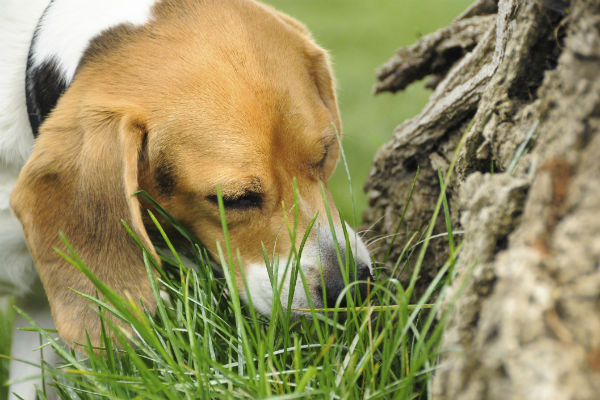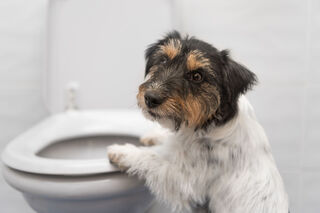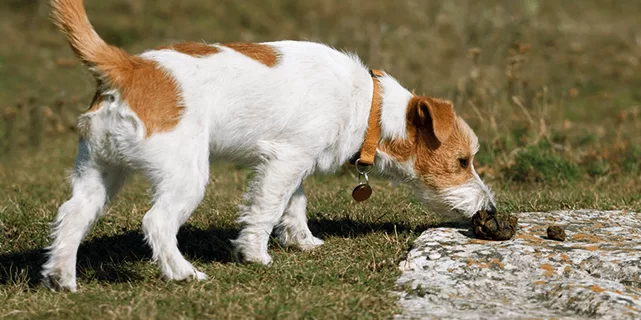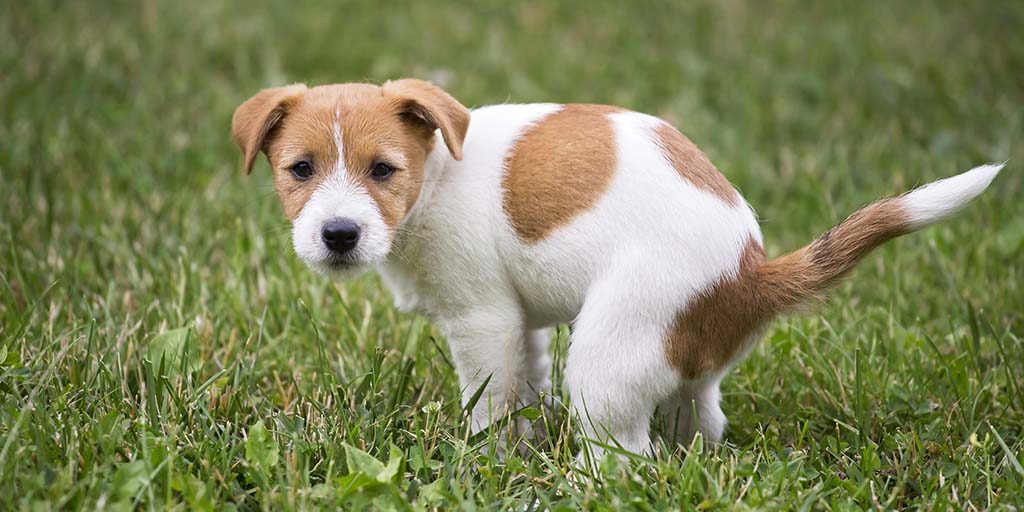
Is it normal for dogs to eat poop?
Thank you for reading this post, don't forget to subscribe!Why do dogs eat faeces? Let us investigate!
Nothing is more repulsive than a dog eating excrement among all the repulsive behaviours of dogs (drinking toilet water, falling in the mud, licking buttocks). Their purpose may not be to make us sick, but the behaviour causes a problem for many owners.
Coprophagia is the scientific term for this behaviour.
Several research has looked into the behavioural and physiological reasons why certain dogs consider faeces to be a delicacy.
Don’t give up if your dog like poop. There are still some options for breaking this behaviour.
Is it natural for dogs to eat poop?
Eating fresh faeces may have been an instinct of canine ancestors.
It shields members of the group from intestinal parasites that may be present in the faeces (Eating the eggs before they are infectious will prevent the parasite from being passed on to others).
While eating poop can be incredibly disgusting to people, it’s not so bad for dogs.
Dogs are scavengers and will eat anything they find on the ground or in the rubbish (maybe they have a completely different definition of “gourmet” than we do)
Coprophagy may also be one of several eating survival habits that evolved in response to adversity from famine.
In other words, when food is scarce, you are not fussy.
It is usual for dogs and puppies to eat poop

For the first three weeks, puppies will not pee on their own.
To keep the baby clean, the mother must lick it, stimulate it to pee, and eat the baby’s excrement.
This tendency is also natural in pups, who eat their poop as well as poop from other dogs, cats, and other animals.
This behaviour may also aid in the development of their gut flora.
Eating your faeces usually is safe, but eating other species’ excrement might create health concerns if the wastes include parasites, viruses, or toxins.
This behaviour usually disappears by the time the puppies are nine months old.
What kind of dog eats poop?
When puppies occur, it is often considered part of their process of exploring the world around them.
Most puppies will be happy with a sniff, but there are a few human-like children who shove everything into their mouths.
• Eating poop is more common in multi-dog households. In single-dog families, only 20% of dogs have the habit, rising to 33% in three-dog households
• Coproeaters have less difficulty toilet training
• 92% of faecal-eating dogs want fresh poop (within one to two days)
• 85% of copro eaters will not eat their faeces, only other dogs’ faeces
• Food-loving dogs (dogs that steal from the table) are more likely to eat poop
• Coprophagy is more common in terriers, retrievers, and Shetland sheepdogs.
A strange fact: Dogs rarely eat soft, poorly shaped or diarrhoeal stools. They seem to be most attracted to hard stools—especially frozen poop.
Why do dogs eat poop?

In addition to the characteristics above,
If your adult dog begins to poop (particularly not before), visit a veterinarian to rule out health issues such as:
Problems with digestion and absorption (too much residual nutrients in the stool, the dog thinks it is food)
• parasites malabsorption syndrome dietary or nutritional deficits
• Nutrient and calorie deficiency in the diet • Dietary restriction or inadequacy (only one meal a day or not enough at all)
increased hunger
• Diabetes, Cushing’s disease, thyroid illness, and other disorders that might produce excessive hunger
• Steroids and other medications (to increase appetite)
Many dogs begin eating their faeces as a result of an environmental stressor or behavioural trigger, such as:
• Isolation or boredom: Research has found that dogs who live alone in kennels or basements are more likely to eat poop than dogs who live with people.
• Restrictive cages: Spending too much time in a small environment might be harmful. Coprophagous behaviour is prevalent in dogs rescued from overcrowded or unsuitable environments.
•Anxiety: It is frequently produced by punishment or harsh reprimand when teaching a dog to defecate. Dogs will only feel chastised for pooping and, fearful of being punished, will eat the excrement to eliminate the evidence, only to be punished further. This will result in a vicious circle
• Seeking Attention: Dogs consume their faeces to elicit a reaction from their owners. Don’t freak out if you see your dog doing this.
• Inappropriate associations with real food: Feeding your dog near faeces may develop a link between the food’s smell and poop, making it impossible to distinguish between the two.
• Scent your mother: Some puppies were perplexed by the smell of faeces on their mother’s breath after their mother assisted them in cleaning up. In addition, the mother may occasionally regurgitate food mixed with the puppy’s faeces for the puppy to ingest. Puppies may adopt this harmful habit as a result of this.
• Living with a sick or elderly dog: A healthy dog will occasionally go to the excrement of a weaker dog, particularly in cases of faecal incontinence. According to scientists, this is tied to the instinct to defend friends from predators.
Possible disadvantages of eating poop

cause stomach discomfort
• Infection with intestinal parasites (eating other people’s faeces)
• Risk of infectious disease (eating other people’s faeces)
• Drug toxicity accumulation (many drugs metabolised are excreted in faeces)
• The owner is nauseated.
How to stop your dog from eating poop
The following tactics may be used to make improvements:
• Vitamin supplementation:
Dogs may be eating poop because something is missing from their diet, particularly a B vitamin deficit, which has been identified as a prominent suspect, so giving your dog a multivitamin may help. (However, eating less commercial feed frequently results in nutrient deficiencies.)
• Enzyme Supplements:
Some dogs’ faeces may contain a high concentration of nutrients due to poor digestion caused by food components or gastrointestinal and pancreatic problems. Supplementing with digestive enzymes may be beneficial.
• Make stool unappealing:
Add additives that make stool disagreeable to food, snacks, or stool. MSG, chamomile, pepper plant derivatives, yucca, and coriander are all common ingredients in many of these products. Remember that if you have more than one dog, all of them must be treated simultaneously!
Poop-eating deterrents, not coprophagous, are keywords.
Get more information about your dog’s gastrointestinal tract and daily health:
